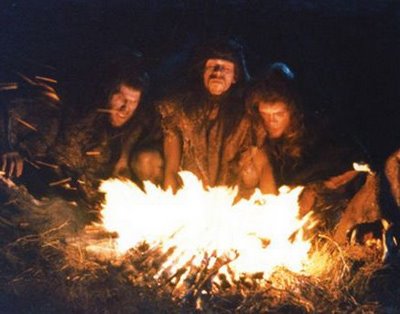Anurag Basu’s established penchant for stealing is trickier
than that of other Bollywood filmmakers because, unlike them, he pretends to be
a serious filmmaker making meaningful character-centric cinema. But what he
really does is lift entire storylines and plotpoints and hammers the characters
into their slats. In
Life in a Metro, the central storyline (Sharman-Kangana), lifted
entirely from Billy-Wilder’s irritating 1960’s “
The Apartment”, was marketed as
a zeitgeisty story of today, of BPOs and the Metropolis as a condenser of our many-headed
lives. In a stolen scene in the stolen plot, rampant affairs between skirt-chasing
middle-aged bosses and their young secretaries were claimed to be as commonplace
in the industry as fake accents. CII should have taken this denigrating movie
to task: for reducing a sunrise industry (of which the future workforce it badly needs and their gatekeeping
parents are still trying to get a handle of)
to a romping orgy. Imagine what might have happened if a bukkake
scene had caught Mr. Basu’s fancy?
Where Metro postured as a serious exploration of urban morality,
Barfi would like you to believe it is an organic love-story and important, even landmark, cinema because the two central characters are
disabled: one physically, another mentally. Barfi, the effervescent
deaf-and-mute protagonist (Ranbir
Kapoor), is the new tramp with the kid (Priyanka Chopra) in tow and playing
hide-and-seek with the cop (Saurabh Shukla). Since
the character is built from various stolen scenes from Chaplin, Keaton, Chan, Kelly and various others, it’s a
confused pastiche (like the rest of the movie) and whatever credibility Barfi
has comes from Ranbir’s own conviction. Likewise, PC’s autism is fitted into
the plot, much like not-a-terrorist Khan’s, and credit is to her for the extreme
vulnerability she suffuses her Jhilmil with (Imagine Kareena Kapoor playing the
character and you’ll know what I mean.)
The movie is set in the hills like many slow-paced comedies
and dramas are to reclaim the romance with time lost in the jostling urbania;
and for some picturesque cinematography. In Barfi’s case, it does not let the well-groomed
and fair-skinned pauper-hero stand out and detract from the director’s
serious-cinema claim, as it might have if the story had been set in the plains.
And it gives the fashion-designers enough room to dress this handicapped-son-of-a-driver
as if he’s just stepped out from the greens of a Woodehousian drama instead of
phati-bundies. (Even when later, B&J have to escape briefly to Calcutta, instead
of letting the grime settle on the hero’s rakish golf-cap, the director transforms the
City-of-Joy’s famous poverty to match Barfi.)
Also, the hills, still frozen in Raj grandeur, provide a set
seeped in colonial nostalgia
and sensibilities where, again, the pauper-hero, fairer and better-dressed than
the brown-sahib poseurs does not stand out like a black native might have in
the plains.
(A measure
of a good character sketch is who his friends are and what they reveal about
the character, and Barfi’s purported best friend is as well-rounded as a mumbled
lie.)
With these
borrowed scenes and sensibilities, Barfi is thrust into the audience’s face as a
life-affirming character because nothing disaffirming happens to him. His
disability is a constraint that he acts within (like being inured to being booed) but it’s never an inconvenience; he
does not have to fight prejudices to lead a normal working life like Koshish’s
Sanjeev Kumar has to. And before the audience can frown and intone to
themselves “But surely it’s not possible that…”, the filmmaker will spin
another needless suspense in the non-linear narrative to distract it from its
inherent implausibility.
In the end, Barfi is a dishonest and an unethical movie,
despite some excellent acting. Saurabh Shukla stands out (his best work to-date
for me and he defines Barfi more than the character himself does) and should
definitely be up for all nominations. But I doubt he would receive even the
recognition due to him in an industry that awarded Mr. Basu’s Metro for “original”
screenplay. I am afraid that instead of severely criticizing Mr. Basu for exploiting
serious disabilities to unite various stolen scenes and ideas, as much as that
detestable travesty
My Name is Khan, it would again end up awarding him.
PS: Just after penning this article, I find that Barfi is now
our official entry to the Oscars. Can there be bigger shame than this?






















































